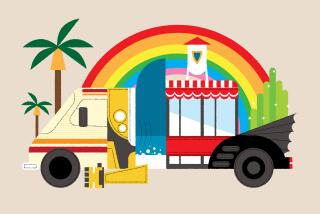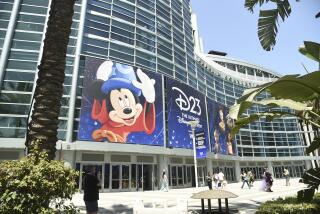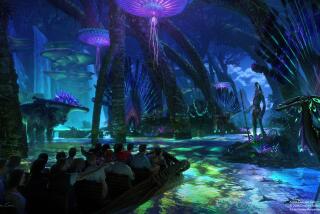King Kong ride helps boost Universal Studios park attendance
- Share via
It’s official: Theme park visitors went bananas for King Kong.
The new 3-D attraction starring the overgrown ape helped Universal Studios Hollywood draw just over 5 million visitors in 2010, a 26% increase over the previous year, according to a study released Thursday.
Even so, Disneyland in Anaheim remained the most popular theme park in Southern California, drawing about 16 million visitors in 2010, a decline of 0.5% from the previous year,
Coming in second in Southern California was Disney California Adventure Park in Anaheim. The park drew 6.3 million visitors, an increase of about 3%, thanks to its new water-and-light show, World of Color.
Universal Studios Hollywood, despite the boost in visitors from King Kong 360 3-D, was third in Southern California.
“We’re particularly proud of King Kong 360 3-D, which has become one of our signature thrill rides,” said Xiomara Wiley, a senior vice president at Universal Studios Hollywood.
The ranking came from the Burbank-based Themed Entertainment Assn., a trade group for designers of theme parks, casinos, museums, zoos and other entertainment venues. The latest assessment is based on an annual estimate of theme park crowds by AECOM, a Los Angeles engineering and consulting firm.
Worldwide, the report said, Disney’s Magic Kingdom park in Orlando, Fla., was the most popular theme park, attracting 17 million visitors in 2010, a drop of 1.5% from the previous year. Disneyland in Anaheim was No. 2 worldwide and Tokyo Disneyland was third.
Universal Studios’ Islands of Adventure theme park in Orlando, which was ranked 13th worldwide, enjoyed a 30% boost in attendance last year, thanks to the opening of the Wizarding World of Harry Potter, an attraction based on the series of popular movies. The park drew nearly 6 million visitors in 2010, according to the report.
More to Read
Inside the business of entertainment
The Wide Shot brings you news, analysis and insights on everything from streaming wars to production — and what it all means for the future.
You may occasionally receive promotional content from the Los Angeles Times.










